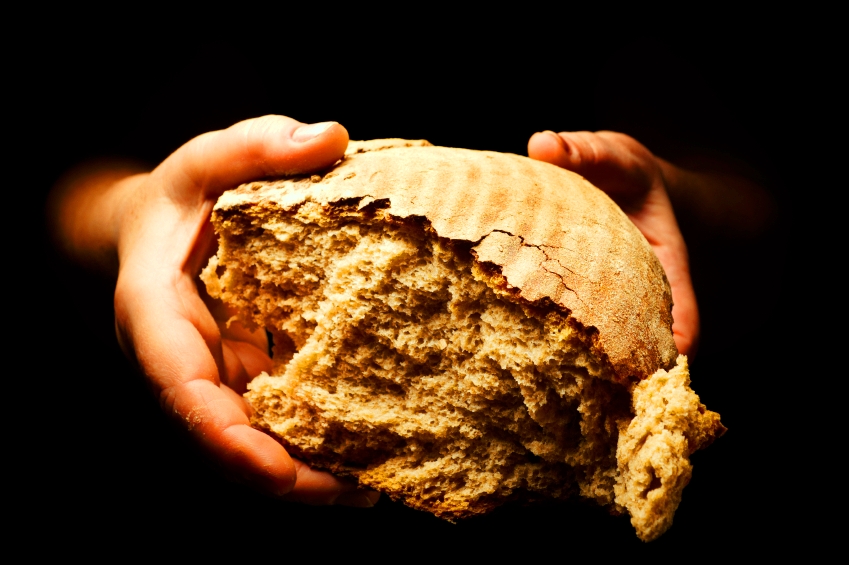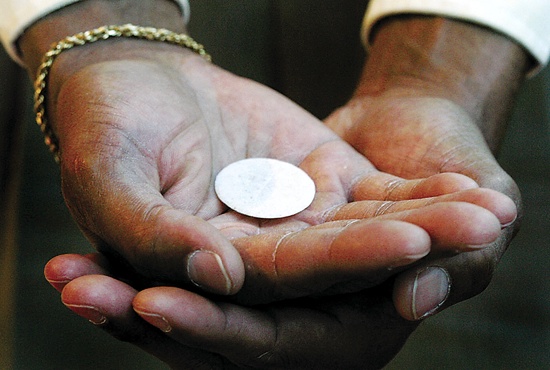The texts were: Isaiah 66:10-14; Galatians 6:1-10; Luke 10:1-11, 16-20
Writing in The Guardian’s food supplement, Yotam Ottolenghi says: ‘now’s the time when we all head outdoors to soak up every last bit of rare sunshine’, so it’s only natural he muses, that we take food outside with us.
The al-fresco options in this feast include spicy pulled pork vindaloo; lime and poppy seed law; mango ice-cream; and summery savoury tarts filled with lamb and courgette; tomatoes and mozzarella; crab and broad beans; salmon and fennel.
It’s mouthwatering fare, but it’s not the stuff of the average hastily assembled picnic of baguettes, cheese and porkpies; nor is it the spontaneous, seize the moment it’s stopped raining BBQ!
But most of our dealings with food and hospitality are not like the glossy magazines. We have family favourites: the meals of our childhood; the recipes we learnt in food-tech; the comfort food we can cook without thinking; the pasta and pesto standby.
The food landscape we inhabit stretches from Deliveroo to food banks; from indulgence to basic need. The food we take outside with us, might be wrapped in plastic for convenience; consumed in a way which publicly reinforces the pace, isolation and inequality of our food culture.
There’s a line in today’s gospel which takes me straight back to school meals, Saturday tea and a variety of invitations given and received: eat what is set before you.
What sort of economy of food is this?
Jesus sends out 70 disciples: they’re officially commissioned or appointed to go ahead of him. They operate as a critical mass of witnesses; dispersed in pairs, walking the roads, covering the ground.
Jesus describes this task as a harvest: there’s a sense of urgency and abundance. Time is short; the labourers are few.
There’s risk to this enterprise: they take no money and go with the clothes they stand up in. They won’t be taken for wealthy travellers or merchants; they will be vulnerable and defenceless. They walk the roads, cover the ground prepare the way; and they do so by finding a place to stay.
The place for greeting and witness, for safety and harvest is in the home. The place for encounter is around the table; it’s over food and drink provided for them.
Embedded in Luke’s narrative is a system of mutual relationship.
Peace is given, received and shared.
This peace is something tangible; something we can experience.
It’s a gift of wholeness, of calm, of bringing together: to begin with such a greeting to offer a physical gift. A gift of being present, or words which create a feeling of belonging.
Peace isn’t spoken of on the road - but in the home. In the place of birth and marriage, of parenting and intimacy, of family and household. As one biblical writer these ties are ‘disrupted and a new family connected through loyalty to Jesus and through hospitality, is created’.
This peace can rest on and bring rest to the household willing to receive it.
This peace can be rejected and return to the one who gave it; but it doesn’t evaporate or shrink or disappear.
Peace is given, received; shared, returned.
This is an economy of gift within which we can live and relate and flourish.
Food is part of this peace-able social system: the disciples themselves aren’t to seek out a better offer - rejecting the eastern equivalent of the beans and baked potato in favour of the perfect spinach and ricotta cannelloni!
They are to eat what is provided for them: complaining or pushing food around the plate causes offence.
To eat what is provided to them is not only reward for labour but a seal of new relationship.
Sharing food in peace is a sign of the nearness of God’s Kingdom.
The small moments of acceptance, of breaking bread, of fellowship at the table, point towards something bigger.
There are moments of rejection in this story too: of bread not broken, of quieter tables which point us to the pain of separation and brokenness.
Not every place is receptive to a message of peace; not every seed will bear fruit.
There are times when we have to let go and move on: shaking the dust off our feet.
But when the disciples return, what is it that they rejoice in? It’s not proclaiming good news or seeing a change in ordinary homes; it’s not in proclaiming peace or seeing it accepted.
No, it’s the stuff that sounds more heroic: defeating powers of darkness, what we Paul sometimes calls principalities and powers. Jesus’ response reminds them that the struggles of this world are all too real.
Rather than boasting of their own power and taking pride in what they have done, Jesus reminds that God is the source of all insight and power. He reminds them that at the heart of the good news is the work of drawing others into relationship with God.
By reaching out to the poor and despised; by restoring hope and bringing healing, victory over sin and death is embodied; and in bridging that separation, we are better equipped to overcome our separation with others.
There is no place for lone-rangers or superheroes in this way of witness: there will always be vulnerability alongside this work of transformation. To sit and eat together, to eat was is provided for us, is one of the most intimate, generous and powerful things we can do. Here we become family.
It is across that table that we build networks of support and friendship, resistance and peace. Over broken bread, light breaks into our lives.
Jesus is invested in who we live in the world now; how we find peace in our own hearts and our own households; how we seek to follow the commandments of God.
Paul describes this as sowing in the Spirit: not because we are reaping a harvest through our own efforts, but because we are taking our share in God’s harvest. This harvest signals the fulfilment of the Isaiah’s promise: there will be joy and gladness; that we will be nourished and comforted; that even grief and mortality will be transformed.
This is a harvest of the new creation.
Through the triumph of the cross, this new realm is everything.
At the Eucharist is a place where we come together around one table and break one bread.
Each time we come to this place, we receive afresh a message of peace.
We are invited to eat what is put in front of us; what is placed into our hands.
This meal nourishes us here and now as we find new strength for the journey. We are fed by the life and love of God, given for us in Christ Jesus; we are given a foretaste of the eternal heavenly banquet.
At the end of the mass, we walk away from this holy place, fed by this sacred food. And often the frustrations and separations of the world confront us more acutely. We get swept up in them.
The challenge of living and working for the good of all raises challenging questions - what does peace feel like here, what action leads to justice there? How does this meal change our own households? Whose burdens will we cary this week? Who will be the one to restore us in a spirit of gentleness?
May we who eat what is placed into our hands this day, dedicate our freedom to God’s service: may our households reflect the economy of life-giving love; may we speak and act for peace; for we are a new creation.
© Julie Gittoes 2019



